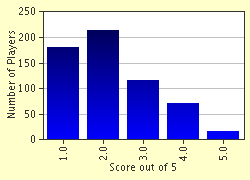
In baseball, an error is the act, in the judgment of the official scorer, of a fielder misplaying a ball in a manner that allows a batter or baserunner to reach one or more additional bases, when such an advance should have been prevented given ordinary effort by the fielder. It is also an error when a fielder muffs a foul fly to prolong the time at bat of a batter, whether the batter subsequently reaches first base or is put out. Official Rules of Baseball
The term error can also refer to the play in which an error was committed.
An error does not count as a hit unless, in the scorer's judgment, the batter would have reached first base safely but one or more of the additional base(s) reached was the result of the fielder's mistake. In that case, the play will be scored both as a hit (for the number of bases the fielders should have limited the batter to) and an error. Similarly, a batter does not receive credit for a RBI when runs score on an error, unless the scorer rules that a run would have scored even if the fielder had not made a mistake. For example, if a batter hits a ball to the outfield for what should be a sacrifice fly, and the outfielder drops the ball for an error, the batter will still receive credit for the sacrifice fly and the run batted in.
If a play should have resulted in a fielder's choice with a runner being put out and the batter reaching base safely, but the runner is safe due to an error, then the play will be scored as a fielder's choice, with no hit being awarded to the batter, and an error charged against the fielder.
Passed balls and wild pitches are separate statistical categories and are not scored as errors.
Because a batted ball hit on the fly into foul territory, with the batting team having no runner(s) on base, and a fielder misplaying such ball for an error, it is possible for a team on the winning side of a perfect game to commit at least one error.
There is a curious loophole in the rules on errors for catchers. If a catcher makes a "wild throw" in an attempt to prevent a stolen base, and the runner is safe, the catcher is not charged with an error, even if it could be argued that the runner would have been put out with "ordinary effort." There is therefore sort of a "no fault" condition for the catcher attempting to prevent a steal. If the runner takes an additional base due to the wild throw, an error is charged for that advance.
Statistical significance
Traditionally, the number of errors was a statistic used to quantify the skill of a fielder. Research has shown that the error rate is higher when the quality of fielding is suspect, i.e., the performance of an expansion team in its first year, or the fielding done by replacement players during World War II, and is lower when playing conditions are better, e.g. on artificial turf and during night games.
However, fans and analysts have questioned the usefulness and significance of errors as a metric for fielding skill. Notably, mental misjudgments, such as failure to cover a base or attempting a force out when such a play is not available, are not considered errors.
A more subtle, though more significant objection to the error, as sabermetricians have noted, is more conceptual—in order for a fielder to be charged with an error, he must have done something right by being in the correct place to be able to attempt the play. A poor fielder may "avoid" many errors simply by being unable to reach batted or thrown balls that a better fielder could successfully reach. Thus, it is possible that a poor fielder will have fewer errors than an otherwise better fielder.
In recent times, official scorers have made some attempt to take a fielder's supposed "extraordinary" effort or positioning into account when judging whether the play should have been successful given ordinary effort. However, this still leaves a statistic, such as fielding percentage, that is based on errors as a dubious way to compare the defensive abilities of players.

 Lefthit
Lefthit
No comments:
Post a Comment